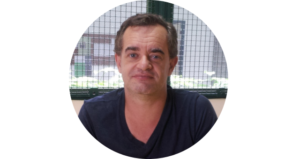
Residency period: March 3 to December 31, 2025
Department of Communication – School of Philosophy and Human Sciences, UFMG
Bruno Souza Leal is a Full Professor in the Department of Communication, of the Postgraduate Program in Communication (research line “Media Textualities”) and a 1D researcher at CNPq. He coordinates the Center for Studies on Communicational Plots: Narrative and Experience, integrating, among others, in Brazil, the Historicity Networks of Communicational Processes (UFMG; UFBA; UFRJ; UFU; UFOP; UERJ; UFF; USP; FIOCRUZ; UFS; UFPI; UFRB) and Linhas – Minas Gerais Network of Narrative Studies (UFMG; UFU; UFOP). He coordinates the PPGCOM/UFMG Publishing House. Abroad, he maintains partnerships with the University of Minho (Portugal), Complutense University of Madrid and Rey Juan Carlos University (Spain), with North Carolina State University (USA) and Escola Superior de Jornalismo (Mozambique), in addition to dialogues with different partners in Latin America. He was coordinator of PPGCOM/UFMG (2008-2010 and 2020-2022)
DAILY DISASTERS: ANALYTICAL EXPLORATIONS OF THE ARTICULATIONS BETWEEN TEMPORALITIES, EVENTS AND TEXTUALITIES
The research, carried out in partnership with the research groups Narra (UFU) and Cultura Fotográfica (UFOP), aims, through the figure of everyday catastrophes, to simultaneously investigate media and everyday actions, directly or indirectly linked to problematic social fields, and the temporal dynamics and multiplicities present therein. In addition, it seeks to reflect on the implications of an approach to communication processes that considers their textualities as the focus and basis for reflection. This is possible because everyday catastrophes, events and textualities have a common procedural dimension, open, in which epistemic, temporal and political actions and dimensions are recognized. Operationally, it is proposed to carry out a Textualities Laboratory, which develops a set of case studies, selected from the coverage of specific informative media, which will simultaneously serve as a material basis for theoretical-methodological reflections and specific analytical movements.